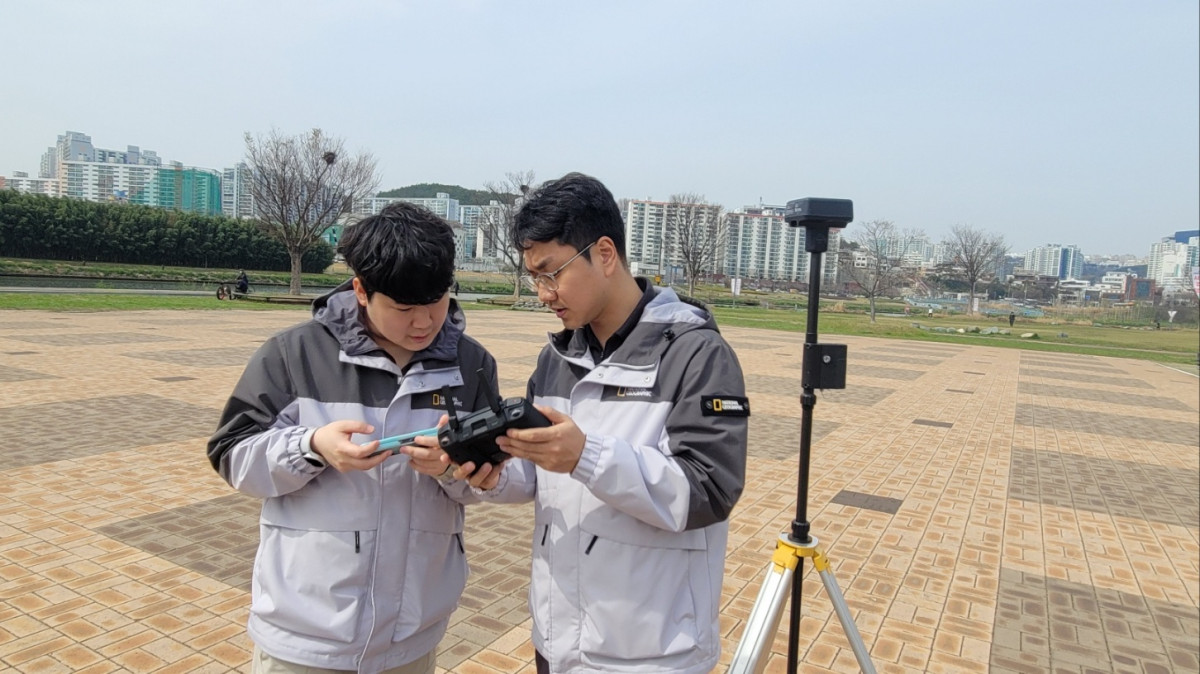Dreaming of Korea’s Patagonia | InvaLab | Wonhyeop Shin, CEO

본문
While startups that care for the planet are emerging one after another, technology companies in the field of "ecological industry"—especially "ecological restoration"—are extremely rare. InvaLab is making waves. InvaLab focuses on invasive alien plants. Invasive species are defined as "organisms that have been introduced—either artificially or naturally—from abroad and disrupt or are likely to disrupt the balance of the ecosystem." InvaLab diagnoses target sites using drone-based monitoring to quantify and ensure the continuity of natural management. It then conducts seeding services by mounting thousands of seed balls on drones. The seed balls developed by InvaLab are small, fingertip-sized spheres made by mixing native seeds with customized nutrient-rich soil.
We met with InvaLab’s founder and CEO, Wonhyeop Shin.
In 2023, InvaLab obtained certifications as a social venture and venture company. It was selected for the Pre-Startup Package from the Korea Ministry of SMEs and Startups, the Social Venture Competition, Gyeonggi Social Impact Challenge, and won the top prize in the Startup Hackathon Competition. It was also selected for Hyundai Motor Chung Mong-Koo Foundation's "H-OnDream Startup Ground," Seoul National University's Lab-Based Startup Program, and KOICA’s CTS Seed program. InvaLab is currently conducting a collaboration project with the Korea Institute of Marine Science & Technology Promotion (KIMST) and SK Innovation and has secured investment from the Yuhan-Kimberly Green Impact Fund.
Top-level Technology and Shared Values
CEO Wonhyeop Shin earned a Master’s degree in Plant Ecology and a Ph.D. in Landscape Architecture from Seoul National University. He previously worked with UNDP and UNEP. Realizing that humanity, facing biodiversity loss and depopulation due to climate change, needs specialized technology-driven companies, he started gathering people who share his values and aspirations.
CTO Daeyeol Kim holds a Master’s in Environmental Design from Seoul National University and worked at the Institute for Sustainable Development and the Korea Institute of Geoscience and Mineral Resources. He won the Minister of Environment Award in the National Environmental Big Data Competition. CFO Yanghyun Lee holds a Ph.D. in Landscape Architecture from Seoul National University and led R&D projects at the Korea Forestry Promotion Institute, Forest Cooperatives in Vietnam, National Institute of Biological Resources, and Korea Environmental Industry and Technology Institute. COO Taejun Lee holds a Ph.D. in Technology Management, Economics, and Policy from Seoul National University and has received awards from the Ministry of Science and ICT, the Ministry of SMEs and Startups, and the Ministry of Land, Infrastructure, and Transport for ESG and smart city innovation.
They are now focusing on developing solutions for biological invasions. Their services are designed to add quantification and sustainability to natural environment management by applying the principle of plant competition with minimal human labor. They are also advancing biological control using seed-based strategies and improving monitoring techniques using spectroscopic sensors and LiDAR.
Founded in 2023, InvaLab is a startup offering solutions to eradicate invasive plant species using seed balls.
Plants Rank First in Spread Severity
Globally, damage and management costs caused by invasive plants have reached $12.88 billion (₩14.5 trillion) since 1970, a figure believed to be underestimated due to data gaps. According to the Intergovernmental Science-Policy Platform on Biodiversity and Ecosystem Services (IPBES), the global market impact of invasive alien species surged from ₩400 billion in 1970 to ₩423 trillion in 2021. The number of invasive species is expected to increase from 33,170 in 2005 to 45,100 by 2050, and the associated economic losses and management costs are expected to grow exponentially.
Among invasive mammals, invertebrates, fish, and plants, plants rank first in spread severity. Invasive plants can cause reduced crop yields, allergic reactions, disease outbreaks, livestock avoidance and digestive issues, and damage or destruction to native plant habitats. Seventeen invasive plant species are officially recognized in Korea. Crop yields for corn, soybeans, and ginseng have decreased by up to 53%, and the financial losses, including management costs, are significant. Non-monetary values like national biodiversity are estimated at ₩10.2 trillion.
Developments in transportation and trade—airports, seaports—have helped promote global exchange and economic activity, but have also led to the unintended introduction of alien species. While not all alien species are harmful, many have been reported to disrupt ecosystems by invading habitats and reducing native flora and fauna populations.
Seed Balls Made from Species More Competitive Than Invasive Plants
Invasive species are organisms that have dispersed from their original habitat and thrive in new environments, competing with native species and causing biodiversity loss and ecological, economic damage. Traditionally, invasive plants have been removed through simple, physical methods such as pulling or cutting, which are repetitive and labor-intensive. Biological control using plant competition is a promising alternative but requires time-consuming experimental validation and repetitive labor for similar trials.
InvaLab offers services that can reduce such labor.




